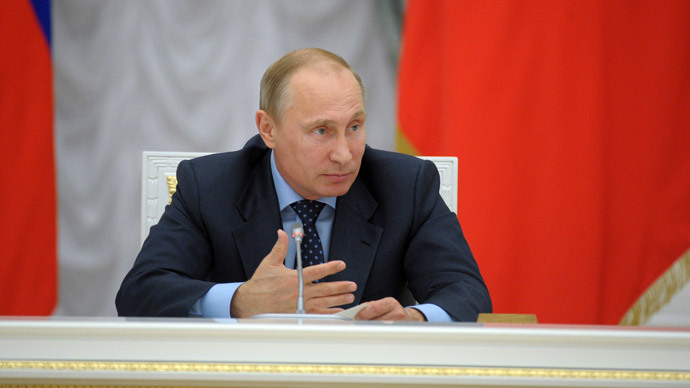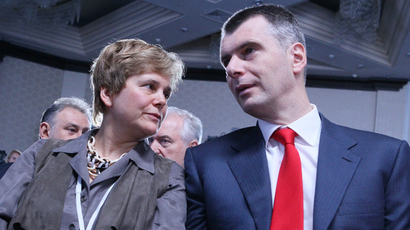Presidential bill bans foreign bank accounts for civil servants

Vladimir Putin’s draft law forbids all staff involved in state administration and strategic industries from holding foreign bank accounts. The draft also requires income reporting for state employees of all levels.
The new bill published on the State Duma website on Tuesday continues the anti-corruption drive and the tendency for the ‘nationalization of the elites’ that started in 2013 and so far has resulted in the law that bans top state officials, both elected and appointed, from holding bank accounts abroad or owning foreign-issued shares and bonds. The restrictions also touched upon heads of major state owned corporations.
The presidential draft broadens the list of those who fall under restrictions to all “involved in preparing the decisions concerning the sovereignty and national security of the Russian Federation” and all people who occupy state service positions in the Central Bank and state corporations, funds and similar organizations. The exact list of positions that will be subject to restrictions will be drafted after the parliament passes the framework bill.
Civil servants will also have to report their spending if the price of their acquisitions, be it real estate, cars or securities, exceeds the three-year combined income for themselves and their spouses. Additionally, any candidate for a post in a state agency or a state owned company would have to report his/her income and financial obligations.
Other anti-corruption amendments include a list of remands and sanctions that could be levied on police officers for poorly executing their duties, up to dismissal ‘caused by a loss of trust’ – a formula that means that the fired officer lied in his/her income declaration, possessed foreign securities or bank accounts, managed a business entity or ran a foreign NGO or its Russian affiliate.
The new rules have already caused major changes in Russian politics – major entrepreneurs with international businesses either had to sell their assets, like deputy Moscow Mayor Maksim Liksutov, or give up their political career, like billionaire Roman Abramovich, who has stepped down as the chairman of the legislature of the remote region of Chukotka.














